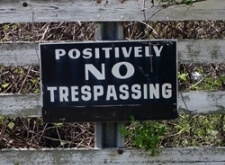 It’s difficult to know where to start on the list of controversies associated with shale gas and the process of fracking.
It’s difficult to know where to start on the list of controversies associated with shale gas and the process of fracking.
Perhaps the most emotive issue since the appearance of nuclear warheads at Greenham Common in the 1980s, fracking has prompted a groundswell of activism and concern.
But David Cameron in his speech to the UN New York Summit on Climate Change has cautioned that the exploitation of the “shale revolution” should not be strangled by “green tape”.
Cameron, despite the inevitable backlash and criticism, actually has demonstrated a sensible and pragmatic approach to future energy generation by backing countries to be allowed to “choose their own paths” and not to be subjected to targeted contributions from dictated sources and instead to be able to exploit all possible opportunities including fracking and nuclear power.
Whilst the binding EU targets of 2020 have meant Britain has had to subsidise a centrally dictated range of energy generation sources such as wind and solar farms, the post 2020 landscape is up for grabs with the UK focused on a far more open approach to contributions from varied sources.
Indeed the UN’s Intergovernmental Panel on Climate Change have endorsed shale gas extraction as being “very consistent with low carbon development and decarbonisation” on the proviso that it is a substitute for coal and not other renewable technologies.
However the controversy that surrounds nuclear power and shale gas extraction are a dominant reminder that the path to a genuine fuel mix will not be easy, and that regardless of how open minded the prevailing government is, the population at large will have very clear views as to what is acceptable or otherwise.
Even so Nuclear, the traditional bête noire of energy protesters, can’t compete with the multi faceted controversies that fracking conjures. Nuclear’s issues begin and end with pollution, but fracking goes further, all the way into the rights of private property. Forget NIMBY this is NUMBY… fracking under the back yard, not just in it.
The government have allowed an amendment to trespass legislation to be passed that prevents the need for extraction companies to seek permission from landowners in order to drill under their property to access shale gas or geothermal energy reserves.
In a wonderful advert for the democratic process, the changes to the Infrastructure Bill have been pushed through by DECC despite 99% of respondents to the consultation being opposed to the amendment.
In a statement that will comfort no one, DECC explained the new law will “remove the barriers” to fracking.
A DECC spokesman added:
“Having carefully considered the consultation responses, we believe that the proposed policy remains the right approach to underground access and that no issues have been identified that would mean that our overall policy approach is not the best available solution,”
Energy Minister Matthew Hancock added:
“These new rules will help Britain to explore the great potential of our national shale gas and geothermal resources, as we work towards a greener future – and open up thousands of new jobs in doing so.”
The own goal scored is startling.
A balanced fuel mix requires a balanced implementation and the taking of the public along with them, DECC have utterly failed to do this. As an advert for how Cameron’s vision of stamping out “green tape” and government’s being able to “choose their own paths” this is not a good one, not a good one at all.
One suspects an awful lot of goodwill has been lost already in the pursuit of future energy security.
